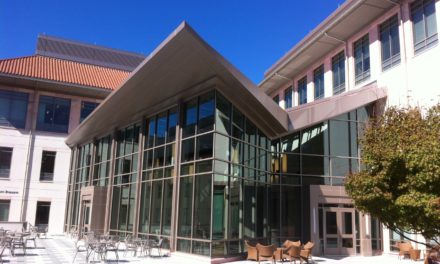With the sudden resignation of Sen. Johnny Isakson (R-Ga.), two Georgia Senate seats will be up for grabs in 2020. It is important now more than ever for Emory students to engage the Atlanta and Georgia communities while the state receives national attention. We urge students to start paying attention to the candidates and races now, as young people may have a serious chance to make an impact on a national level.
The involvement of Emory student groups in the 2018 midterm elections provides a model for such engagement. From canvassing in Georgia’s 6th congressional district to phone banking for the gubernatorial election, student groups stepped up to influence several surprisingly competitive elections. For example, the 6th District flipped to Democratic Rep. Lucy McBath (D-Roswell) after Jon Ossoff’s special election defeat two years prior. This should serve as evidence that both Young Democrats and College Republicans, along with other political student organizations, should help students fulfill their civic duty.
Students should begin researching candidates for the two senatorial elections in 2020. The Democratic primary to determine who will run against Sen. David Perdue is on May 19, and voters won’t be able to cast ballots for Isakson’s seat until next November’s “jungle primary” and anticipated runoff election. While the presidential election will undoubtedly receive the largest share of media attention, congressional control will be critical in influencing priorities important to our generation such as climate change, student debt and gun control. Emory students should consider registering to vote in Georgia to ensure that they have input on issues that matter to them.
Because governmental actions affect everyone, Emory organizations that aren’t politically focused should also encourage their members to get out and vote. Community-based groups on campus could contribute by hosting voter registration drives.
Increased engagement at the local level also matters for the entire campus. Emory’s lack of a light rail connection has been an ongoing issue for students, as many areas of Atlanta are inaccessible from campus without a car. Access to MARTA funding was a driving force behind Emory’s annexation into Atlanta, though the University’s quick annexation has led to accusations that Emory is stealing funding from other deserving areas to build out the Clifton Corridor, such as the Beltline.
Emory and the Clifton Corridor clearly need access to mass transit. Emory recently overtook Delta as Atlanta’s largest employer, and the corridor is the most congested part of the city without rail access. Making the case to the city and state officials should not fall solely on Emory’s administration. Emory students, especially those considering living in Atlanta after they graduate, must be advocates for the full funding and quick construction of the Clifton Corridor.
Every election matters. During the school year, students spend more time on campus than back in their hometowns. The decisions that local and state politicians make have a palpable impact on the experience of Emory students, whether it be transit access or gun laws. For the four or more years that Emory students live in Atlanta, it is crucial to remain engaged and informed about local and state politics.
The Editorial Board is composed of Zach Ball, Jacob Busch, Andrew Kliewer, Boris Niyonzima, Shreya Pabbaraju and Kimia Tabatabaei.
The Editorial Board is the official voice of the Emory Wheel and is editorially separate from the Wheel's board of editors.



